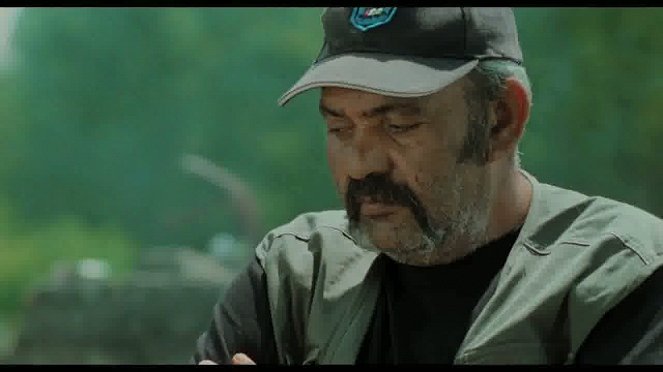Regie:
Benedek FliegaufDrehbuch:
Benedek FliegaufKamera:
Zoltán LovasiBesetzung:
Katalin Toldi, Gyöngyi Lendvai, Lajos Sárkány, György Toldi, Gyula Horváth, Franciska Törőcsik, László CzifferInhalte(1)
Seit Monaten geschehen in der ungarischen Provinz brutale Morde an Sinti und Roma. Die Polizei ermittelt mehr schlecht als recht, denn im Polizeipräsidium empfindet man gar Sympathie für den fremdenfeindlichen Mörder. Auch in der Roma-Familie von Maris (Katalin Toldi) herrscht momentan Angst und Schrecken. Man weiß nie, ob man nicht die nächste Familie sein könnte, die grausam um die Ecke gebracht wird. Trotz aller Furcht versuchen Tochter Anna (Gyöngyi Ledvai), Sohn Rio (Lajos Sárkány), der Großvater (György Toldi) und Mutter Maris so gut es geht einem geregelten Tagesablauf nachzugehen. Doch auch in der Schule sehen sich die beiden Kinder Hass und Anfeindungen ausgesetzt. Um hinter das Geheimnis der Mordserie zu kommen, dringt Rio nun bis an den letzten Tatort vor. (Verleiher-Text)
(mehr)Kritiken (3)
Der grundlegendste Film über Rassismus, der jemals gedreht wurde. Eine erstaunliche Darbietung von Fliegaufs Einfühlungsvermögen, seiner einzigartigen Intuition und der Fähigkeit, den Betrachter die Situation durch Fragmente ohne ein als Anleitung dienendes ideologisches Raster durchleben zu lassen. Das können nur wenige Menschen auf der gesamten Welt, wobei Bence sie in Anbetracht seines einzigartigen nicht manipulativen Lyrismus vielleicht noch etwas übertrifft. Wenn wir es unseren Kindern beibringen, sich derartige Filme anzusehen, dann hat die europäische Gesellschaft noch Hoffnung, eine Katastrophe zu vermeiden.
()
From 2008 to 2009, a racist group undertook a series of brutal attacks against local Roma people in Hungary. They used Molotov cocktails to set fire to houses on the outskirts of settlements and shot at those fleeing with shotguns. Their rampage left several injured and six dead, including a four-year-old boy. The event was shocking even in the context of Central Europe, which is saturated with racism and other prejudices. A film based on this event could have had immense potential and could have awakened the public from lethargy. However, Benedek Fliegauf approached this bitter social issue in his own way and slowly directed a quasi-documentary about one day in the lives of a Romani family. He filmed it in a manner that art festival enthusiasts may appreciate, but that will reliably deter regular viewers with its form. They will feel like they are watching a hastily made film with poor camera work and lighting, filmed in an uninvolved manner and without a prominent protagonist. In short, a documentary that bores and elicits emotions only rarely. I dare say that there are only two scenes in the entire film that have the potential to appeal to a broader audience. Besides the final massacre, the scene is the cynical dialogue between two police officers at the crime scene, where the director illustrates the attitude of the security forces towards the "Gypsy question." This is not the most fundamental film about racism ever made, as some people say. This only speaks to the self-centeredness of the intellectual environment of the closed club viewer immersed in their cultural bubble. What matters is a film that sparks public debate, affects a significant part of society, and affects public opinion. This film is one of those for viewers who are already aware and which tries to convince those who do not need convincing. It fits precisely into the type of works that are screened around midnight on the Art channel. For myself, I say that this is my first and also the last film by Fliegauf. Clearly, we do not and will not understand each other. Overall impression: 25%.
()
Unfortunately, in this case, I'm inclined to join the camp of those who were bored. Individual scenes and individual details didn't mean anything to me, and I watched them without essentially feeling anything. I don't think I'm racist, I don't have a problem communicating with anyone, but I just didn't really know what was interesting about this family.
()

